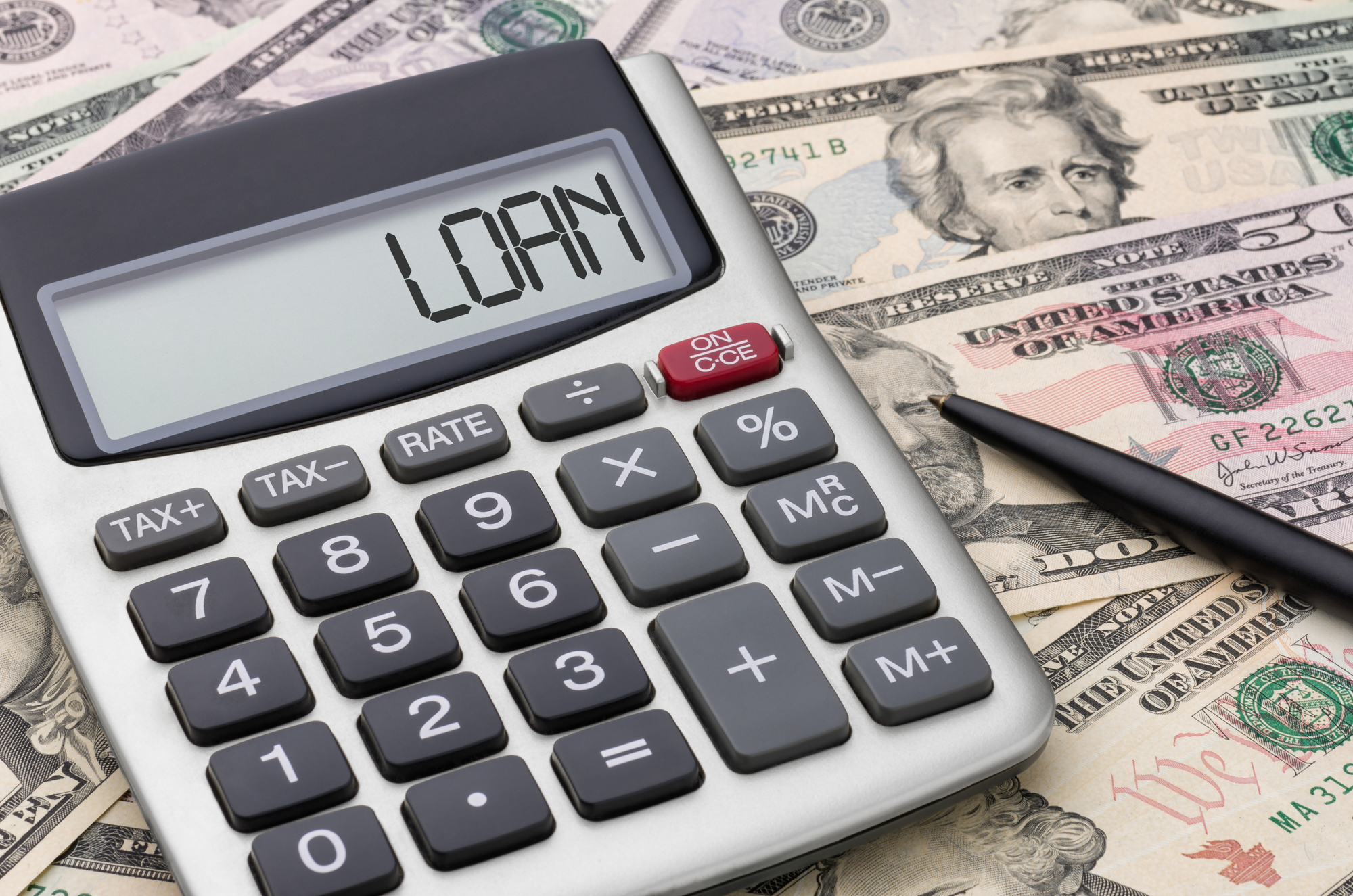Navigating loan options in finance can be overwhelming. Secured loans offer a solution by allowing you to borrow money with added security for lenders. It’s important to understand the different loan types available to find the right fit. For individuals with bad credit, collateral—like a car or savings account—can make it easier to qualify for personal loans and potentially improve terms.
Understanding Secured Loans
A secured loan is a type of personal loan where you borrow money from a lender while pledging a valuable asset as collateral. This collateral serves as security for the lender. If you fail to repay the secured loan according to the agreement, the lender has the right to seize and sell your collateral to recoup their losses.
Common types of collateral for secured loans include:
- Vehicles: Cars, trucks, semi-trucks, and motorcycles can be used as collateral for auto loans or title loans.2
- Real Estate: Homes and land can be used as collateral for mortgages and home equity loans.
- Investment Accounts: Stocks, bonds, and other securities can be used as collateral as well.
Key Takeaways
- Secured loans require collateral, an asset pledged to secure the loan amount.
- Collateral reduces risk for lenders, leading to potentially lower interest rates.
- Secured loans are often easier to qualify for compared to unsecured loans.
The Loan Process for Secured Loans
Applying for Secured Loans
The application process for a secured loan is similar to that of any loan. You’ll typically need to provide:
- Proof of identity and income: This includes your government-issued ID, social security number, and proof of employment or income statements.
- Documentation related to the collateral: Ownership title, appraisals, and any existing liens proving the collateral is yours to the lender.
- Creditworthiness information: An understanding of your credit score. The lender will generally run a credit report with your social security number.
Secured Loan Approval and Terms
After reviewing your application and collateral, the lender will determine your eligibility and personal loan terms. These terms include:
- Interest Rate: Secured personal loans typically offer lower interest rates compared to other loan types, such as an unsecured loan, due to the reduced risk for lenders.
- Repayment Period: This is the timeframe you have to repay the secured personal loan in full, including principal and interest.
- Personal Loan Amount: The amount of money you can borrow is often based on the value of your collateral. Lenders typically won’t lend more than a certain percentage of the collateral’s appraised value.
- Pledging the Collateral: Once approved, you’ll legally pledge your collateral to the lender. This may involve signing a security agreement that outlines the lender’s rights to the collateral if you default.
Pros and Cons of Secured Loans
It is important to weigh the pros and cons of secured loans to determine if this borrowing option is right for you.
| Pros | Cons |
| Lower Interest Rates: Collateral reduces risk for lenders, leading to lower rates. | Repossession Risk: Defaulting can lead to losing your collateral. |
| Easier Approval: Secured personal loans for bad credit is easily due to collateral. | Collateral Restrictions: Using collateral may have limitations, like needing approval to sell a car with a lien. |
Choosing the Right Secured Loan
Evaluating Your Needs
Before committing to a secured loan, carefully evaluate your needs. Consider:
- The type of collateral you’re willing to pledge: Match the secured loan purpose to the collateral. For example, an auto loan uses your car as collateral, while a home equity loan uses your home’s equity.
- The loan amount and repayment terms: Ensure the loan amount caters to your needs and the repayment terms fit comfortably within your budget. Being able to make your monthly payments on time is important.
Comparing Loan Offers
Don’t settle for the first offer. Shop around and compare interest rates, fees, and loan terms from multiple lenders. This ensures you get the best deal possible.
Types of Secured Loans
| Title Loans | Title loans are personal loans that offer quick cash using the borrower’s car as collateral. The borrower gets money upfront and is able to continue driving the car. However, interest rates are typically high, and laws and regulations vary between states. |
| Auto Loans | An auto secured loan is another common type of personal loan. The vehicle itself serves as collateral, making secured loans easier to obtain and often at lower interest rates compared to other personal loans. However, defaulting will trigger repossession of the vehicle. |
| Home Equity Loans | This secured loan uses the equity in your home as collateral. They can be used for significant expenses like home renovations, medical bills, or debt consolidation. Home equity loans often have lower interest rates than other personal loans because they are secured by your home. |
| Mortgages | Mortgages are typically the largest secured loan most people will ever take. A home serves as collateral, which allows for lower interest rates and longer repayment terms. However, failing to make payments can result in foreclosure on the home. |
Understanding Loan Terms and Conditions
Regardless of the type of loan, it’s crucial to thoroughly understand the terms and conditions before committing.
- Compare Rates- Compare the annual percentage rate (APR) rather than just the interest rate, as APR includes additional fees and gives a better overall cost of the loan.
- Repayment Options- Know the length of the loan term and how it affects your monthly payments and the total amount of interest paid over time.
- Fees- Be aware of any fees associated with the loan, such as origination fees, prepayment penalties, or late payment fees.
- Conditions- Understand any conditions that may apply, such as the need to maintain insurance on a secured asset or restrictions on the use of loan funds.
Tips for Securing the Best Loan
- Shop Around and Compare Rates- Don’t settle for the first offer you receive for your secured loan. Get quotes from multiple lenders to compare interest rates and loan terms personalized for you.
- Understand the Loan Terms- Before signing a secured loan agreement, be sure to understand all the terms and conditions, including the interest rate, repayment period, and any fees.
- Borrow Only What You Can Afford- Borrow only what you can comfortably repay. Consider your budget and make sure the secured loan payment fits within your monthly expenses.
- Understand Your Collateral’s Value- Knowing the true value of your collateral can help you negotiate better secured personal loan terms and avoid borrowing more than you need.
- Seek Professional Advice- Consulting with a financial advisor can provide you with personalized advice tailored to your specific financial situation. Sometimes you can find free financial advice in your area.

Secured Loan Defaults
Defaulting on a secured loan can have serious consequences due to the collateral involved. Key points to consider:
- Repossession of Collateral: If you default, the lender can take your asset, like your car or home, to recover their losses.
- Credit Score Impact: Defaulting negatively affects your credit score, making it harder to get future loans and leading to higher interest rates.
- Deficiency Balance: If the asset is sold for less than the secured loan balance, you may owe the difference. The lender can take legal action to recover this amount.
- Legal Action: Besides repossessing the collateral, lenders can pursue legal action, leading to wage garnishment or bank account levies.
Before taking a secured loan, ensure you can meet the payment obligations to avoid these consequences.
What to do If You Can Not Repay a Secured Loan
If you’re struggling to repay your secured loan, take these steps to manage the situation:
- Contact Your Lender: Inform your lender about your financial difficulties as soon as possible. They may offer solutions to help you get on track.
- Review Your Budget: Assess your expenses and find areas to cut back. Redirect any available funds towards your loan payments.
- Consider Refinancing: If you have sufficient equity or improved credit, you might qualify for refinancing at a lower interest rate or with more favorable terms.
- Seek Professional Advice: Consult a financial advisor or credit counselor. They can help you understand your options and develop a plan to manage your debt.
Predatory Lending Disclosure:
Some lenders use unfair practices to trap borrowers in expensive debt. Watch out for loans with very high interest rates and hidden fees that can make your debt grow fast. Avoid loans with big balloon payments due at the end, as these can be hard to pay off.
Always compare lenders, read all loan terms carefully, and ask questions if anything seems unclear. If you suspect unfair lending practices, report them to consumer protection agencies or the CFPB to protect yourself and others.
Conclusion
Navigating secured personal loans can be daunting, but with the right information, you can make informed decisions. Secured personal loans for bad credit borrowers offer a practical solution if they have collateral to pledge. By carefully considering your options and working with trusted lenders like us, you can secure the financing you need while protecting your financial future.
We understand that everyone’s financial situation is unique. We offer a variety of secured loan options including car title loans to meet your specific needs. Our friendly and knowledgeable loan specialists can help you compare options, understand the terms, and find the right loan for you.
Get a no-obligation quote today! Contact us at (888)-309-0994 to discuss your loan options.2
Common Questions About Secured Loans
Are Secured Loans Hard to Get?
A secured loan is usually easier to get compared to an unsecured loan because they involve collateral. The collateral reduces the risk for the lender, making them more likely to approve the loan. This is especially true for borrowers with limited credit history or lower credit scores.
However, the ease of getting a secured loan also depends on the value and type of collateral offered. For instance, real estate and vehicles are commonly accepted as collateral, while other assets might be less straightforward.
What Credit Score is Needed for a Secured Loan?
The credit score needed for a secured loan varies by lender and loan type. Generally, secured loans are more accessible to individuals with lower credit scores. Some lenders may approve secured loans for bad credit borrowers with credit scores as low as 500 to 600, especially if the collateral is valuable.
However, a higher credit score (above 650) can help you get better terms, such as lower interest rates and higher loan amounts. While higher credit scores are beneficial, secured loans can still be an option for those with lower scores.
What’s the Difference Between a Secured and Unsecured Loan?
The main difference between secured and unsecured loans is collateral:
- Secured Loans: A secured loan requires collateral, like a car or house. If you don’t repay, the lender can repossess the asset. Secured personal loans have lower interest rates and are easier to get, especially with low credit scores. Examples: mortgages, auto loans.
- Unsecured Loans: An unsecured loan does not require collateral. Approval is based on credit score, income, and credit history. They have higher interest rates and stricter approval criteria due to higher risk for lenders. Examples: personal loans, credit card debt.


